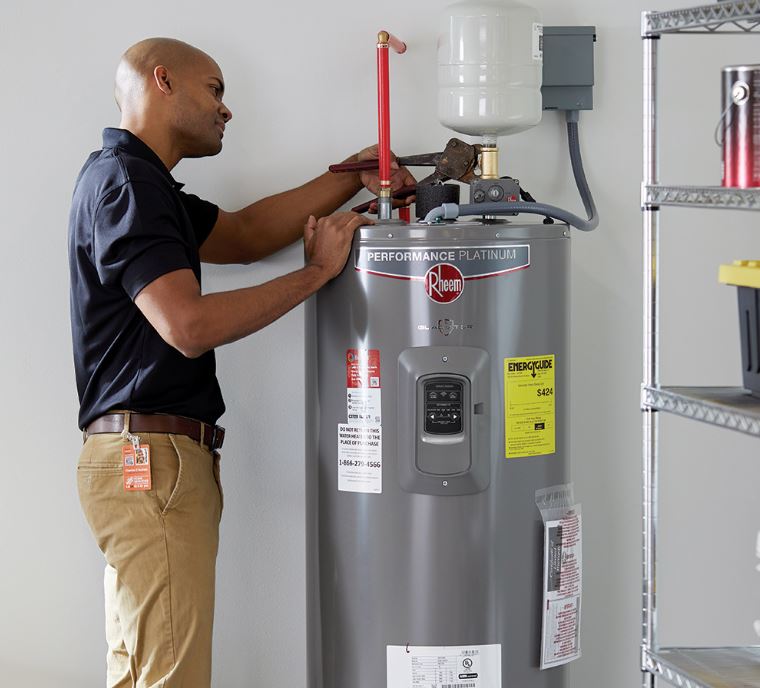Water Heater Safety and Leakage Protection: A Complete Guide
Water heaters are essential appliances in our homes, providing hot water for showers, laundry, and dishwashing. However, like any other appliance, they require proper maintenance and safety precautions to prevent accidents, leaks, and potential damage.
A malfunctioning water heater can lead to flooding, scalding injuries, or even gas leaks (in gas-powered units). In this comprehensive guide, we’ll discuss water heater safety tips, how to detect leaks early, and the best ways to protect your home from water damage.
Why Water Heater Safety Matters
Water heaters operate under high pressure and temperature, making them susceptible to wear and tear over time. Common risks associated with water heaters include:
- Water leaks leading to property damage
- Scalding burns from excessively hot water
- Gas leaks (in gas water heaters) posing explosion risks
- Sediment buildup reducing efficiency and causing overheating
By following safety best practices, you can extend the lifespan of your water heater while keeping your household safe.
1. Common Causes of Water Heater Leaks
Before diving into prevention, it’s important to understand why leaks happen in the first place. Some of the most frequent causes include:
A. Corrosion and Rust
Over time, the metal tank of a water heater can corrode, especially if the anode rod (which prevents rust) is depleted. Once corrosion sets in, small leaks can develop and eventually lead to a burst tank.
B. High Water Pressure
Excessive water pressure (above 80 PSI) can strain the tank and connections, leading to cracks or ruptures. Installing a pressure relief valve helps regulate this.
C. Loose or Damaged Connections
The inlet and outlet pipes, drain valve, or temperature-pressure relief (TPR) valve may loosen over time, causing leaks.
D. Sediment Buildup
Hard water causes mineral deposits to accumulate at the bottom of the tank, leading to overheating and cracks.
E. Old Age
Most water heaters last 8-12 years. Beyond this, the risk of failure increases significantly.
2. Signs Your Water Heater is Leaking or Failing
Catching leaks early can save you from costly water damage. Watch out for these warning signs:
✅ Puddles or moisture around the tank – The most obvious sign of a leak.
✅ Rust-colored water – Indicates internal corrosion.
✅ Unusual noises (popping, rumbling) – Caused by sediment buildup.
✅ Fluctuating water temperatures – Could mean a failing heating element or sediment issues.
✅ Increased energy bills – A struggling water heater works harder, using more energy.
If you notice any of these signs, inspect your water heater immediately or call a professional.
3. Essential Water Heater Safety Tips
A. Regular Maintenance Checks
- Flush the tank annually to remove sediment buildup.
- Inspect the anode rod every 2-3 years and replace it if corroded.
- Check the TPR valve by lifting the lever to ensure it releases pressure properly.
B. Set the Right Temperature
The U.S. Department of Energy recommends setting your water heater to 120°F (49°C). Higher temperatures increase scalding risks and energy consumption.
C. Install a Water Leak Detector
Smart leak detectors (like those from Moen Flo or Phyn) can alert you via smartphone if moisture is detected near the water heater.
D. Use a Drain Pan
Place a metal or PVC drain pan under the water heater to catch small leaks before they spread.
E. Consider a Water Heater Blanket (for older units)
If your heater is in a cold space (like a garage), an insulation blanket can improve efficiency and prevent freezing in winter.
F. Gas Water Heater Safety
- Ensure proper ventilation to prevent carbon monoxide buildup.
- Install a gas leak detector near the unit.
- If you smell gas (rotten egg odor), evacuate and call emergency services.
4. How to Prevent Costly Water Damage from Leaks
Even with maintenance, leaks can still happen. Here’s how to minimize damage:
A. Install an Automatic Shutoff Valve
Devices like the LeakSmart or Flo by Moen can automatically cut off water supply if a leak is detected.
B. Place the Water Heater in a Safe Location
- Avoid installing it in an attic (leaks can go unnoticed and cause ceiling damage).
- Keep it elevated in flood-prone areas.
C. Know How to Turn Off the Water Supply
In case of a major leak, locate the shutoff valve (usually on the cold water inlet pipe) and turn it clockwise to stop water flow.
D. Consider a Tankless Water Heater
Tankless models are less prone to leaks since they don’t store large amounts of water.
5. When to Call a Professional
While some maintenance tasks are DIY-friendly, certain issues require expert attention:
🔧 Major leaks or tank ruptures
🔧 No hot water (could be a faulty heating element or gas valve)
🔧 Strange smells (gas or rotten egg odor)
🔧 Excessive rust or corrosion
A licensed plumber can assess whether your unit needs repairs or replacement.
Final Thoughts: Stay Proactive for Safety
Water heaters are workhorses in our homes, but they need regular care to function safely. By performing routine maintenance, installing leak detectors, and knowing the warning signs of failure, you can prevent disasters and extend your unit’s lifespan.
Did you find this guide helpful? Share it with a friend or family member to help them stay safe too! Have you ever dealt with a water heater leak? Let us know in the comments below!
FAQ Section
Q: How often should I flush my water heater?
A: Once a year to prevent sediment buildup.
Q: Can a leaking water heater explode?
A: While rare, extreme pressure buildup (if the TPR valve fails) can cause a rupture.
Q: Should I repair or replace a leaking water heater?
A: If it’s over 10 years old, replacement is usually more cost-effective.
Q: Do tankless water heaters leak?
A: They can, but the risk is much lower since they don’t store water in a tank.






